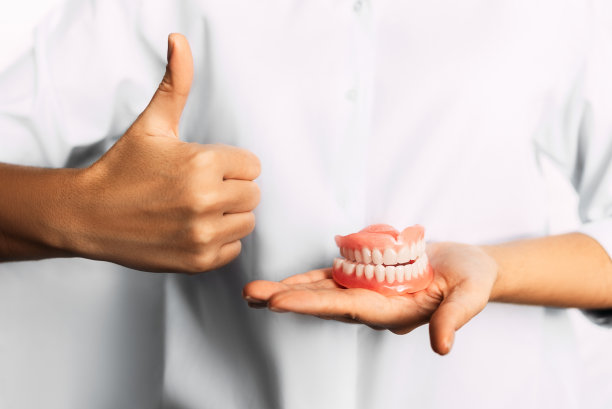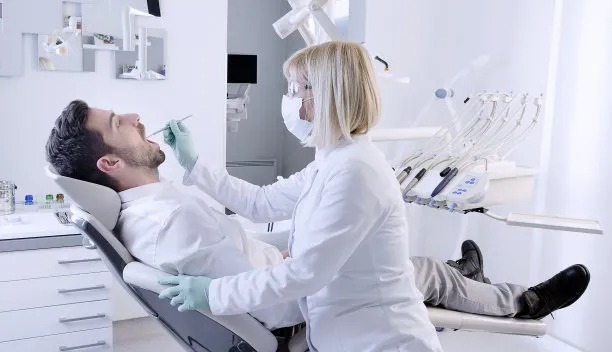Summary: Extracting a tooth may seem like a drastic measure, but it plays a vital role in maintaining overall dental health and future oral wellbeing. This article explores the significance of tooth extraction through various lenses, including alleviating pain from dental disease, preventing further oral health issues, enhancing oral hygiene, and promoting the alignment of remaining teeth. Understanding the necessity of tooth extraction can empower individuals to make informed decisions about their dental care, ultimately leading to a healthier mouth and improved quality of life.
1. Alleviating Pain from Dental Disease

One of the primary reasons for tooth extraction is to alleviate severe pain caused by dental diseases. Conditions such as advanced tooth decay, periodontal disease, and abscesses can lead to intense discomfort that may interrupt everyday activities. Extracting the affected tooth can relieve pain and provide immediate comfort to the patient.
Moreover, when a tooth is badly infected, it can cause more than just localized pain; the infection can spread to surrounding tissues and lead to systemic health issues. By removing the problematic tooth, the risk of complications can be significantly reduced, protecting not only oral health but also overall wellbeing.
Additionally, pain management after an extraction is often straightforward, with many patients finding relief through over-the-counter medications. This simplicity makes extraction a practical solution for those suffering from chronic oral discomfort.
2. Preventing Further Oral Health Issues
Extracting a tooth can act as a preventative measure against future dental complications. A decayed or damaged tooth may serve as a breeding ground for bacteria, leading to infections that can affect neighboring teeth and structures. Removing the compromised tooth can halt the progression of these issues, preserving the health of adjacent teeth.
Furthermore, wisdom teeth extraction is a common procedure aimed at preventing overcrowding and misalignment of the rest of the teeth. When wisdom teeth become impacted or fail to emerge properly, they can push against existing teeth, resulting in a myriad of complications such as infections and misalignment that may necessitate orthodontic treatment.
By proactively extracting teeth that are likely to cause issues, individuals can safeguard their mouth from unnecessary pain and expensive treatments later on. This foresight can lead to a more sustainable dental health strategy in the long run.
3. Enhancing Oral Hygiene Practices
Maintaining optimal oral hygiene becomes increasingly difficult when problematic teeth are present. They can trap food particles and plaque, making regular cleaning challenging. In turn, this can lead to a vicious cycle of poor oral hygiene resulting in additional decay. Extracting such teeth can simplify at-home care, fostering an environment where regular brushing and flossing are more effective.
Moreover, in cases where multiple teeth are extracted, a shift in the oral landscape can make access to cleaning easier. Patients often report improved oral hygiene post-extraction, allowing for a healthier mouth and reducing the frequency of dental visits due to preventable issues.
Additionally, the mental aspect of maintaining oral hygiene levels can improve following a tooth extraction. Patients may feel more motivated to adhere to their oral care routines if they have fewer obstacles, which can contribute positively to overall dental health.
4. Promoting Alignment of Remaining Teeth
Tooth extraction can serve a crucial role in promoting the alignment of the remaining teeth. When a tooth is lost or extracted, the shift in dental structure can often allow for a more optimal alignment. Misaligned teeth can cause numerous problems, including difficulties with chewing, increased wear of tooth surfaces, and issues with jaw function.
Orthodontic treatments frequently rely on the extraction of specific teeth to achieve the desired alignment and spacing in the mouth. Such procedures can lead to a more balanced bite and reduced strain on the jaw, which can alleviate discomfort and accompany a healthier chewing function.
Furthermore, aligning the remaining teeth after an extraction can enhance the overall aesthetics of a person’s smile. A beautifully aligned smile not only boosts self-esteem but can also have social implications, positively affecting interactions in both personal and professional settings.
Summary:
In conclusion, tooth extraction is not merely a last resort but a critical component in maintaining good dental health and ensuring future oral wellbeing. The benefits of alleviating pain, preventing further complications, enhancing oral hygiene, and promoting alignment are significant and worthy of consideration. Educating oneself about these factors can lead to more informed decisions in dental care, ultimately enhancing not just oral health but overall quality of life.
This article is compiled by Vickong Dental and the content is for reference only
Vickong Dental
Vickong Dental is a large medical group established in Hong Kong in 2008 by professors from well-known medical universities in Guangdong and Hong Kong, as well as medical doctors from key national '985' universities (including Master's supervisors and senior professors). The chain of branches brings together expert dentists with PhDs and Master's degrees from Hong Kong and Mainland China, committed to providing high-quality dental treatment.
"Vickong Dental Practices the University Motto of 'Healing and Serving Society,' with a Stable Operation for Sixteen Years. It Has Been honored with Hong Kong Enterprise Leaders's Choice,' and is a Global Trusted Implant Center for the Nobel Implant System. Recommended by Hong Kong Metro Broadcast and Guangdong Television, it Serves Customers from Over Thirty Countries and Regions, Gaining the Trust and Favor of Citizens from the Guangdong-Hong Kong-Macau Greater Bay Area and Surrounding Cities.

Thousands of customers' unanimous praise
The most recognized and highly recommended dental service by customers in the Guangdong-Hong Kong-Macau Greater Bay Area
We Ensure You Receive Detailed Care and Attention Here
Hong Kong standards, Shenzhen prices, Your Trusted English-speaking dentists

Vickong Dental Medical-Grade Instrument Disinfection Process
Vickong Dental Medical-Grade Instrument Disinfection Process

Vickong Dental Chain: A Warm and Comfortable Environment for Treatment






Appointment Hours

Q&A
Why choose Vickong Dental?
Vickong Dental practices the university motto 「Medicine to Benefit Society」, with each branch bringing together highly qualified dentists with doctoral and master’s degrees from Hong Kong and the Mainland, and has maintained seventeen years of steady operation。Recipient of 「2024 Hong Kong Enterprise Leaders Brand」, 「2025 Hong Kong Enterprise Leaders Brand」, a Nobel Biocare Global Trusted Implant Center, and a brand recommended by Metro Radio Hong Kong and Guangdong TV。
To date, we have served customers from more than thirty countries and regions,earning exceptionally high word-of-mouth recognition and trusted recommendations from residents across the Guangdong-Hong Kong-Macao Greater Bay Area and surrounding cities
We have eight major branches in Zhuhai、Shenzhen,and a consultation and service assurance center in Hong Kong,so you can book a free consultation at any time for any questions,which is very reassuring.
If I do not accept the quotation after the CT scan, will I be charged??
No! As long as the actual treatment has not started, you will not be charged any fees.
Will there be any additional charges during the treatment process?
No, there won’t be any additional charges. Before treatment begins, we will clearly explain the treatment plan and its corresponding fees. Only after the patient agrees and signs the consent form will we proceed with the dental service.
Can I pay in Hong Kong dollars?
Yes. Vickong Dental accepts payment in Hong Kong dollars. The amount will be converted based on the exchange rate of the day, and the applicable rate will be clearly communicated to you in advance.
Can I reschedule my appointment at any time?
Yes. Please contact us via **WeChat** or **WhatsApp** as early as possible, providing your original appointment time and details, along with your preferred new date and time slot for rescheduling.













